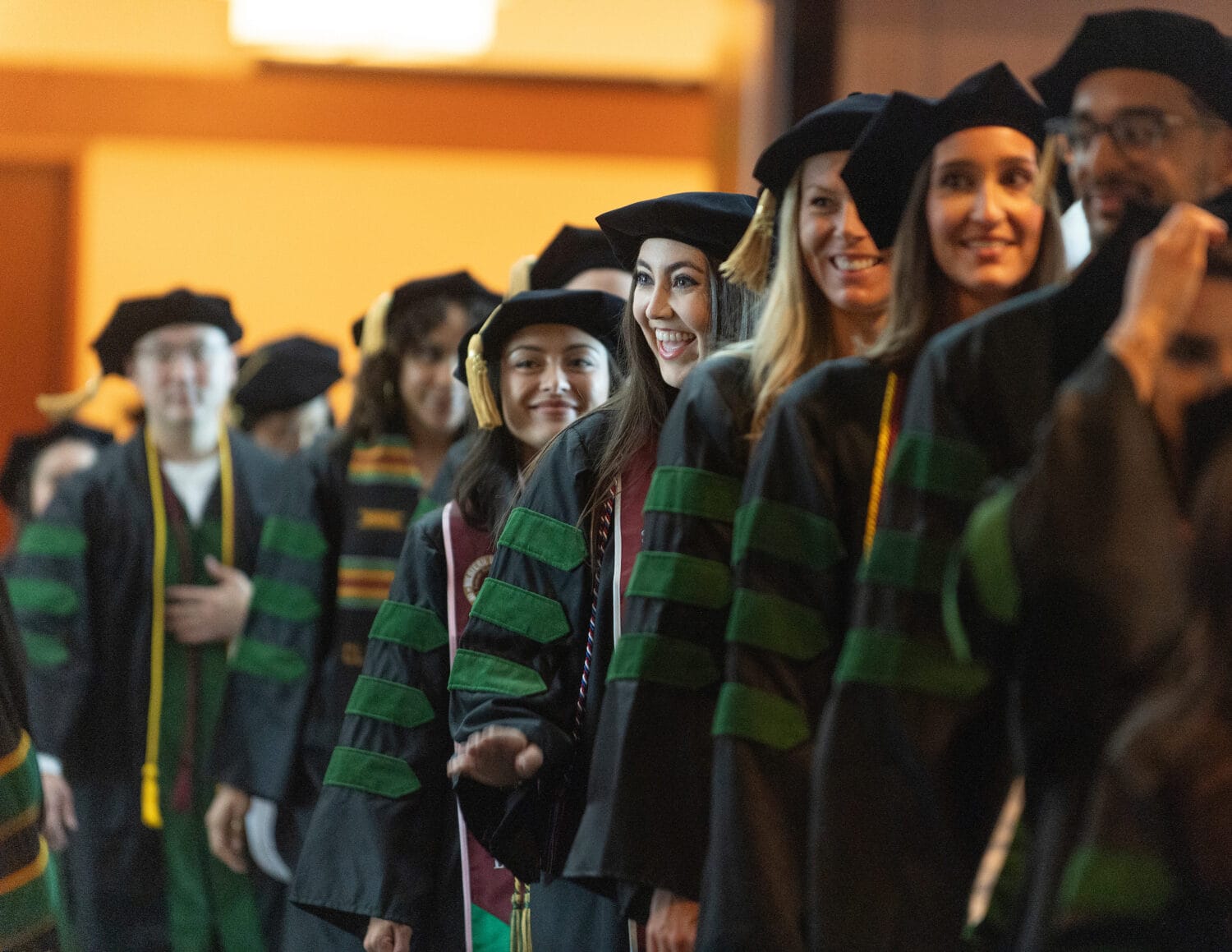Austin Lecture Focuses on Pediatric Medication
The first Austin Lecture at Western University of Health Sciences focused on the financial reasons why pharmaceutical companies shy away from developing medication for children – and the compelling reasons why these medications are important.
Keynote speaker Russell Clayton, DO, presented “Putting the Child First: Pharmaceutical Development Targeting the Pediatric Patient” on Thursday, Sept. 24 on the WesternU campus as part of the first Dr. Robert L. Austin Endowed Lectureship in Pediatric Medicine and Pediatric Health Policy.
Dr. Clayton explained how prescription drugs are developed and why pharmaceutical companies in general don’t find children’s medications to be a good investment of time and resources.
About 2,500 drugs are in development annually, but only about 25 new chemical entities are approved each year, Dr. Clayton said. Development costs range from $1 billion to $1.5 billion. About 30 percent of the drugs in development are anti-cancer drugs, but few of them are designated for pediatric cancer, he said.
“The odds of taking a drug from development to approval are small,” he said. “If (a pharmaceutical company) is going to put in their hard-earned money and hard effort, there has to be a good chance to get a return on the investment.”
Pediatric therapies have a small target population and significant research and development hurdles to clear. Most pediatric diseases are not large population diseases. Doctors cannot get consent legally from a child, so they are faced with asking the parent of a sick child to sign a long document that contains a lot of uncertainty.
“The consent rate for children is 1 in 30, even for life-saving therapy,” Dr. Clayton said.
Children have trouble swallowing pills, so the medication needs to be chewable or in liquid form, which means it needs to be palatable.
Pharmaceutical companies also must deal with the real possibility they would lose a malpractice case should one arise, Dr. Clayton said. A jury often finds for the plaintiff when the case involves a sick child.
But there are also many reasons to develop drugs for children. Some government regulations provide incentives for pharmaceutical companies to target pediatrics, including a provision that extends exclusivity to drugs if they address diseases that affect less than 200,000 people.
The Pediatric Research Equity Act of 2003 requires drug development to include pediatric studies. A waiver is possible if the company demonstrates that pediatric studies are not warranted.
Many nonprofit groups such as the March of Dimes and the Cystic Fibrosis Foundation serve as advocates for better pediatric medicine development, Dr. Clayton said. They lobby for the development of pediatric research and contribute monetarily to development. Groups such as the American Association of Pediatricians and the American College of Osteopathic Pediatricians also support these efforts.
Dr. Clayton also called upon everyone at the Austin Lecture to advocate for developing pediatric therapies.
“We cannot abandon our children,” Dr. Clayton said. “We have to take care of our children. This is a dire, critical need.”
Dr. Clayton is board certified in pediatrics and pediatric pulmonology. When he practiced pediatric medicine, prior to joining the pharmaceutical industry, a lot of prescription instructions for children were based on research on adults, he said. Pediatricians didn’t know whether a certain dosage would be safe or effective for children.
Dr. Clayton is Vice President of Academic and Medical Affairs at Discovery Laboratories in Warrington, Penn. He previously served as an attending pulmonologist at the Children’s Hospital of Philadelphia, where he was Director of the Pulmonary Function Laboratory and the Asthma Program and Associate Director of the Cystic Fibrosis Center
The Dr. Robert L. Austin Endowed Lectureship in Pediatric Medicine and Pediatric Health Policy was established in Dr. Austin’s memory by his wife, Gloria, their children, Charles, Douglas and Lynette, and their families.
Dr. Austin earned his Doctor of Osteopathic Medicine degree from Philadelphia College of Osteopathic Medicine in 1946 and took the MD degree in 1962, when the American Medical Association formally recognized California DOs as qualified MDs. As a practicing pediatrician, he spent his medical career providing health care and sage advice to his patients and their families.
He was a faculty member at the College of Osteopathic Medicine of the Pacific until his retirement in 1981. His interest in pediatric medicine remained strong until his death in March 2000. The lectureship is meant to honor and perpetuate his lifelong love of medical practice and his pursuit of pediatric knowledge in the health professions.
Gloria Austin said her family’s pharmaceutical background reaches back for three generations, so her husband’s osteopathic background makes for a perfect fit with WesternU. She was very excited about Dr. Clayton’s presentation, and his charm and enthusiasm made a connection with the audience.
“He was a marvelous choice for the inaugural lecture,” she said.



